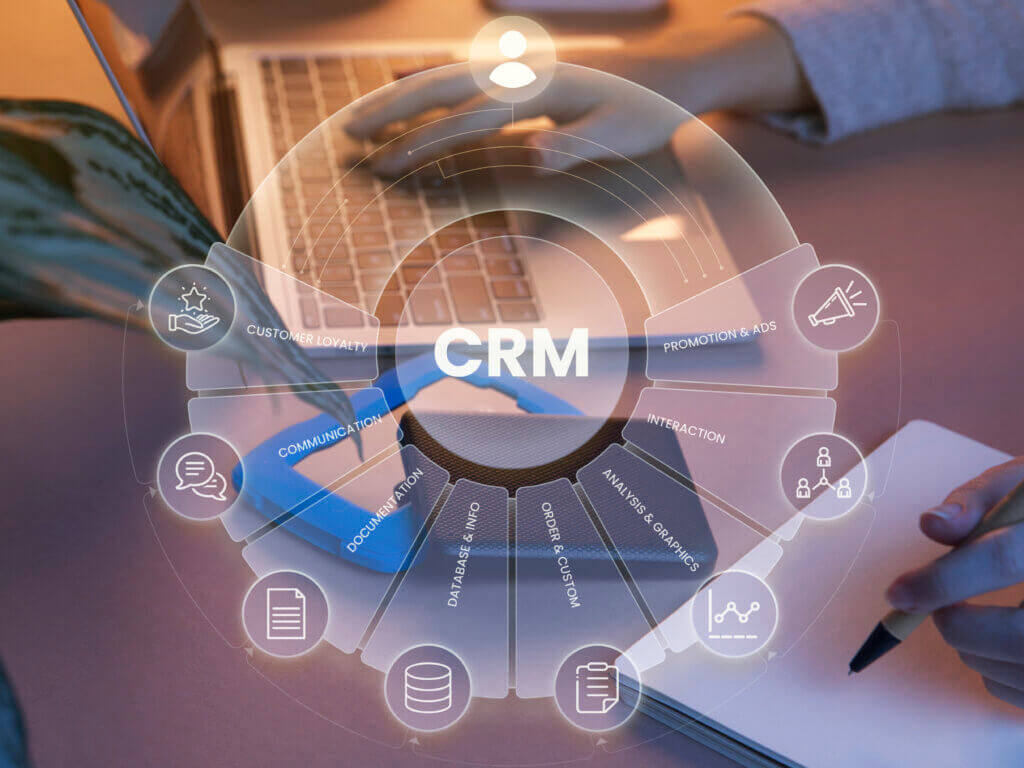1. Introduction to CRM in the Legal Industry
CRM, or Customer Relationship Management, refers to a set of strategies, practices, and technologies used by businesses to manage and analyze interactions with their clients or customers. In the legal industry, where maintaining strong client relationships is crucial, CRM software plays a pivotal role. It allows law firms to store, organize, and access client information effectively, resulting in improved client satisfaction and increased productivity.
2. Benefits of Using CRM in the Legal Industry
Implementing a CRM system in the legal industry offers numerous benefits, including:
a. Enhanced Client Relationship Management
A CRM software enables legal professionals to maintain detailed client profiles, including contact information, communication history, case details, and important deadlines. This information can be easily accessed, ensuring personalized client interactions and better understanding of client needs.
b. Streamlined Case Management
CRM solutions tailored for the legal industry often include features specifically designed to manage cases. These features allow lawyers to track case progress, set reminders for important milestones, and collaborate with colleagues efficiently. By centralizing case-related information, CRM systems improve workflow and minimize errors.
c. Improved Efficiency and Productivity
Automating repetitive tasks and standardizing workflows through CRM software saves time and boosts productivity. Legal professionals can automate document generation, manage appointments and deadlines, and track billable hours more effectively, allowing them to focus on providing quality legal services.
d. Data-driven Insights
CRM systems generate comprehensive reports and analytics that provide valuable insights into the performance of a law firm. These insights help in identifying trends, measuring success rates, and making informed business decisions. By leveraging data-driven insights, legal professionals can refine their strategies and optimize their services.
3. Key Features to Look for in a CRM for the Legal Industry
When selecting a CRM solution for the legal industry, certain key features should be considered:
a. Contact and Case Management
A robust CRM system should have the ability to store and manage extensive client details, including contact information, case history, and relevant documents. It should provide a user-friendly interface to access and update client records easily.
b. Task and Calendar Management
Efficient task and calendar management features are essential for legal professionals to stay organized and meet critical deadlines. Look for a CRM system that allows you to create tasks, set reminders, and synchronize with popular calendar applications.
c. Document and Email Integration
Seamless integration with document management systems and email clients simplifies the process of storing, retrieving, and sharing important case-related documents. Look for a CRM that offers integration with widely used tools like Microsoft Office and Outlook.
d. Reporting and Analytics
A CRM solution that provides comprehensivereports and analytics is invaluable for law firms. It should offer pre-built reports as well as customizable options to track key performance indicators, measure client satisfaction, and analyze business metrics. The ability to generate insightful reports helps in identifying areas for improvement and making data-driven decisions.
e. Security and Compliance
Given the sensitive nature of legal data, security is of utmost importance. Ensure that the CRM system you choose adheres to industry-standard security protocols, such as data encryption, access controls, and regular backups. It should also comply with relevant data protection regulations, such as GDPR or HIPAA.
4. Top CRM Solutions for the Legal Industry
When it comes to CRM solutions for the legal industry, several options stand out:
a. Salesforce
Salesforce is a market-leading CRM platform that offers customizable solutions for the legal industry. It provides robust features for contact and case management, task automation, document integration, and reporting. With its extensive ecosystem of integrations and add-ons, Salesforce can be tailored to meet the specific needs of law firms.
b. Clio
Clio is a popular cloud-based practice management platform that includes CRM functionality. It offers features such as contact and case management, time tracking, billing, and document management. Clio integrates with various legal tools, enabling seamless workflow and collaboration.
c. Zoho CRM
Zoho CRM is a comprehensive CRM solution that caters to businesses of all sizes, including law firms. It provides features for contact and case management, email integration, task automation, and analytics. Zoho CRM offers a user-friendly interface and affordable pricing plans.
d. Practice Panther
Practice Panther is a practice management and CRM software designed specifically for law firms. It includes features like contact and case management, document management, time tracking, and billing. Practice Panther offers integrations with popular legal tools and has a user-friendly interface.
5. How to Choose the Right CRM for Your Legal Practice.
Selecting the right CRM for your legal practice requires careful consideration. Here are a few steps to help you make an informed decision:
a. Assess Your Needs
Identify your specific requirements and challenges. Determine what features are essential for your practice and what goals you want to achieve with CRM implementation.
b. Research and Compare Options
Research different CRM solutions available for the legal industry. Compare their features, pricing plans, customer reviews, and case studies. Shortlist the ones that align with your needs.
c. Request Demos and Trials
Request demos or sign up for free trials to get hands-on experience with the shortlisted CRM solutions. Evaluate their usability, customization options, and overall user experience.
d. Consider Integration Possibilities
Check if the CRM system integrates seamlessly with your existing tools and software. Integration with document management systems, email clients, and accounting software can enhance efficiency.
e. Seek User Feedback and References
Reach out to other legal professionals who are using the CRM solutions you are considering. Ask for their feedback and recommendations. References can provide valuable insights into the usability and effectiveness of the CRM system.
Conclusion
CRM software has become an essential tool for law firms and legal professionals in the digital age. It enables effective management of client relationships, streamlines case management, improves efficiency and productivity, and provides valuable data-driven insights. By selecting the right CRM solution for their practice and leveraging its features, law firms can enhance their operations, deliver exceptional client service, and stay ahead in a competitive legal industry.
Remember to evaluate your specific needs, research and compare CRM options, and seek user feedback to make an informed decision. Implementing a CRM system tailored for the legal industry can revolutionize the way your law firm operates and help you build stronger client relationships.
Are you ready for more valuable And amazing insightful information? then you must explore our extensive collection of blog posts to delve deeper into the topics that interest you. Click here to read another thought-provoking article that’s sure to captivate your mind and broaden your knowledge. Don’t miss out on the opportunity to expand your horizons and stay ahead of the curve. Start exploring now! Click on this Wacmediya

FAQ
What is the cost of CRM software for the legal industry?
The cost of CRM software for the legal industry varies depending on the provider and the specific features included. Pricing models can be subscription-based, with monthly or annual fees, and may depend on the number of users or the size of the law firm.
How canCRM software benefit small law firms?
CRM software benefits small law firms by streamlining their operations, improving efficiency, and enhancing client interactions. It helps them manage client information, automate tasks, track case progress, and generate reports. CRM software enables small law firms to compete with larger firms by providing the tools to deliver exceptional client service.
Can CRM software integrate with other legal tools and software?
Yes, many CRM solutions for the legal industry offer integrations with popular legal tools and software. This allows for seamless collaboration, document management, time tracking, and billing. Integration possibilities should be considered when selecting a CRM system.
Is CRM software secure for storing sensitive legal data?
Yes, reputable CRM software providers prioritize data security and implement robust security measures to protect sensitive legal data. This includes data encryption, secure access controls, regular backups, and compliance with industry standards and regulations.
Can CRM software help with client retention in the legal industry?
Yes, CRM software can help improve client retention in the legal industry. By maintaining detailed client profiles, tracking communication history, and providing personalized experiences, CRM systems contribute to building strong client relationships.
